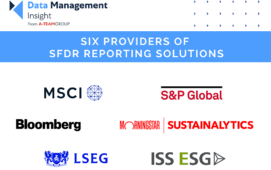
Malaysia has become the latest country to stress data assurance in its proposal for a broad sustainability reporting framework, highlighting the increasing importance being placed globally on ESG data audits.
The government in Kuala Lumpur included assurance support in its touted National Sustainability Reporting Framework for Malaysia (NSRF), consultations on which were launched this week. The government proposes to align the NSRF with the International Sustainability Standards Board (ISSB).
Malaysia joins the European Union, the UK and the US in incorporating third-party checks on corporate-disclosed ESG data into their regulations. The measures are intended to reduce greenwashing and boost trust in sustainability projects while ensuring investors have the most accurate data to make portfolio and risk-management decisions.
Growing Demand
This week’s announcement came two weeks after reports highlighted concerns that investors and financial institutions have about the quality of their ESG data and how they see assurance as a way to improve the situation.
Assurance of greenhouse gas (GHG) emissions data topped a shopping list of investor requirements for improving datasets in not-for-profit sustainability service Ceres’ most recent publication.
Investors unhappy with the quality, volume and reliability of ESG data also want to see more auditing of ESG information used to assess executive pay, the report stated. Data presented in green bond allocation reports and sustainability-linked bond publications should also be checked by third-party assurance providers, added the report, which was based on a survey of more than 20 investors.
“The current state of climate-related information is insufficient,” the report concluded, adding that “the solution has been hiding in plain sight: independent, third-party assurance is a highly effective market tool to validate and discipline manager claims.”
More Audits
That was followed by news that the UK’s Science Based Targets initiative (SBTi) a leading provider of data validation services, had seen a doubling of the number of financial institutions and companies that had registered to have their data audited.
The SBTi, a charity that was formerly part of a collaborative effort that included the CDP and the United Nations Global Compact, said 4,204 organisations’ greenhouse gas (GHG) reduction targets had been validated by the end of 2023 from 2,079 in 2022.
“This extraordinary demand for corporate decarbonisation standards and target validation services has prompted a major scale-up operation to quickly develop a broader range of trusted, credible, emissions reduction standards and increase capacity for validating companies’ targets, while aiming for the highest level of service excellence for companies and financial institutions,” SBTi said.
The Ceres report said the use of assurance would not only improve the quality of reported data, but it would also generate more interest in reporting data. It also acts as an “efficient monitoring mechanism, in that it reduces the redundancy of investors’ own, expensive and less effective, monitoring mechanisms”, it stated.
That was a theme taken up in a recent thought piece by VS Ravi, the chief executive of business advisory, the Invictus Future Foresight Institute.
“Assurance transcends the traditional role of performance validation to become a catalyst for ongoing enhancement,” Ravi wrote in a LinkedIn post. “By benchmarking a company’s practices against established standards, assurance providers pinpoint areas ripe for development. This feedback is invaluable, offering a roadmap for companies transitioning from sustainability to regenerativity, guiding them towards more profound contributions to environmental restoration, social equity, and governance integrity.”
Move First
A driver of the surge in demand for assurance services has been the incorporation of audits in the EU’s Corporate Sustainability Reporting Directive, which went live at the start of the year. The regulation seeks to phase in validation by third-party providers on ESG data reported by the 50,000-plus companies that fall within its purview.
Regulators in the UK and the US indicated they would also include similar measures in their own proposed reporting frameworks to counter greenwashing.
Official support for assurance, however, won’t be enough to fully address the concerns they are built to solve, argued the Ceres report. It said investors has a duty to move first.
“Regulators have begun to require expanding assurance to enhance investor protection and more systematically improve the rigour and reliability of disclosure, but those efforts face political headwinds and may not advance as rapidly or broadly as capital markets need,” the report stated. “Investors have an important role to play to work with other market participants to develop assurance as a timely and effective tool to meet market needs.”
Subscribe to our newsletter





